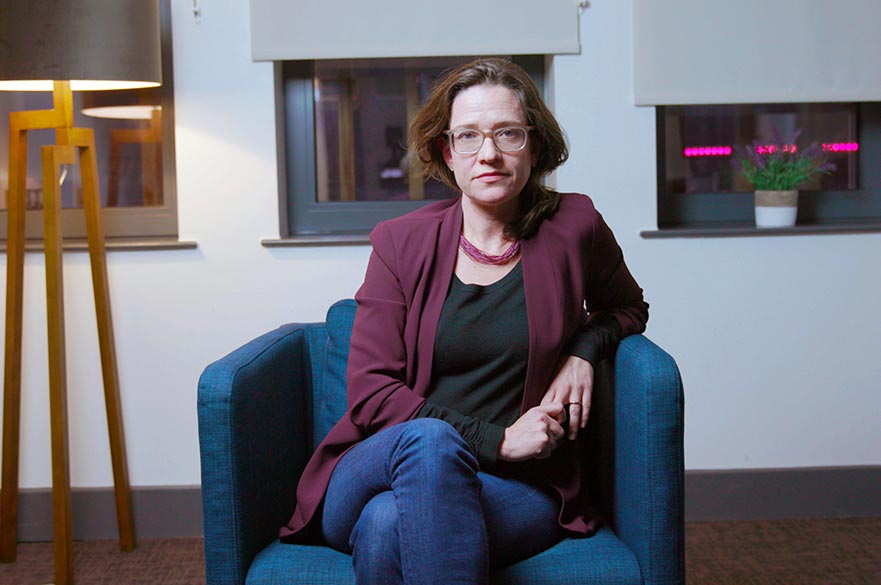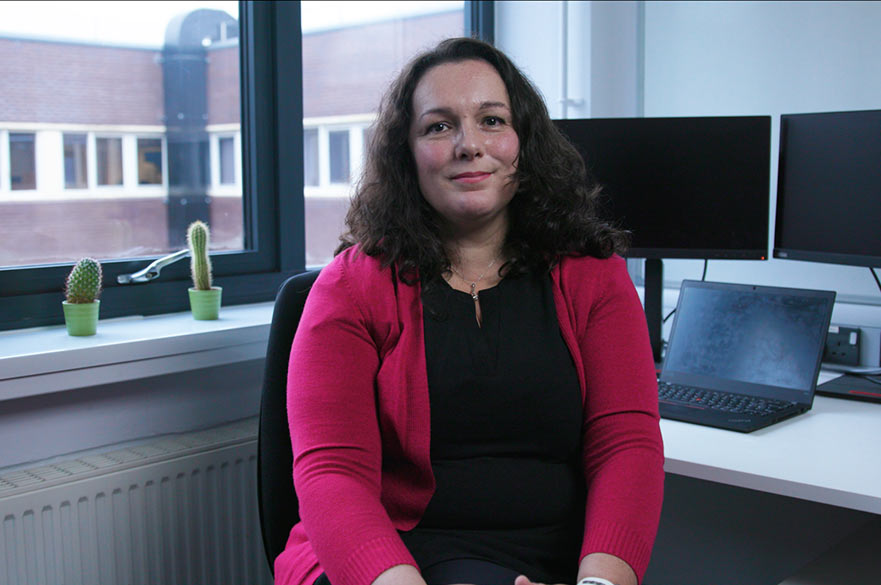Preserving peace: addressing legacy of Northern Ireland's past
Chris Reynolds, Professor
Like everyone who grew up during the Troubles in Ireland, the experience left its mark on me. I am convinced that is the reason why I find myself working so intensely to make sense of this period, both for me, and for the province in general.
When I was young, I had no ambition to become a researcher. Academia was a world unknown to me, my family, and friends. I simply made my way through education following my passion for France and the French language, especially the country’s recent history. I became increasingly interested in specific moments in French history and how they were perceived from a current-day perspective. I then excelled in such areas in my undergraduate studies and was offered the possibility of a scholarship to pursue a PhD in French history. It was here that my research journey began.
Once I decided to pursue a PhD, I dived in headfirst, not fully aware of what lay ahead. It took 3-4 years of intense reading, research and immense self-discipline to complete. I was lucky to secure a position as a French lecturer at the University of Bath before I finished my PhD, which opened up many new contacts and opportunities. I discovered this career as I went along, and even now, as a professor, I am still exploring and learning about it.
I have always been fascinated by the ways in which the past is used in the present. Investigating, exploring, and explaining why and how certain narratives of key moments of the past are remembered collectively has been a common thread in my research. The relationship between the past and the present is such an interesting concept, and one that helps us make better sense of not just what has happened previously, but also how we find ourselves where we are today. This is essentially what Memory Studies is all about, and the opportunity to apply this in a tangible and important context, such as the Troubles, adds to the fascination.
My current research delves into the complex legacy of the Troubles in the context of the Northern Irish peace process. Despite spending much of my early adult life trying to distance myself from Northern Ireland, my experiences growing up during the Troubles have led me back to this area. Through my expertise, I aim to contribute to the peace process by helping us understand the conflict better and remember it in a more constructive way. This effort is crucial to preventing a return to the violence that profoundly shaped my own upbringing.
Through my research, I ask how we can handle the sensitive and difficult issue of the Troubles' legacy in Northern Ireland's peace process to make sure the past doesn't keep dividing communities, but instead helps prevent a return to violence. I developed an innovative methodological and theoretical approach to the issue in collaboration with National Museums NI, and I tested it via a successful project entitled Voices of ‘68.
Voices of ‘68 narrates the story of the Northern Ireland civil rights movement through oral history testimonies, shedding light on the complex and contested memories of this crucial era. The exhibition emphasises the importance of critically and constructively engaging with potentially divisive moments in Northern Ireland's fraught history.
I am currently building the next phase that seeks to apply our approach to another key moment in Northern Ireland’s recent and difficult past, the 1974 Ulster Workers’ Council Strike. This event was a protest against the political and security situation in Northern Ireland – in particular at the proposals in the Sunningdale Agreement, which would have given the government of the Republic of Ireland a direct say in the running of the region.
My research is extremely important to me. It adds a genuine sense of purpose to my job and my day-to-day existence. I thoroughly enjoy my teaching duties and hope that I will always be able to continue with delivering in this domain. I have been fortunate to be able to combine teaching and research. It is the research that adds the cutting edge to my employment. It is the research that excites me and motivates me to keep exploring and building relationships and opportunities with partners in the real world,bringing about real change.
The thought that my research can contribute - even in a small way - to building lasting peace in Northern Ireland and preventing a return to the dark days of violence that shaped my upbringing is all the motivation I need as an academic. I feel incredibly fortunate to have this opportunity.
For me, this is a long-term, career-spanning project. I will continue to develop and evolve this research, in collaboration with National Museums NI, for the foreseeable future. I have many other strands of research around Memory Studies, Oral History, and my work on French History that I am sure will continue to be the focus of my research in the future.
Follow my story
My story doesn’t end here. Keep up to date with me and my research by keeping an eye on my academic profile.
Chris Reynolds
Chris Reynolds is Professor of Contemporary European History and Memory Studies. Chris teaches across a range of undergraduate and postgraduate courses that cover his research interests around Oral History, Memory Studies, Northern Ireland, France, and Museums.
Meet the researchers
Forget lab coats and research papers. It's time to get personal. Meet the people behind the research and uncover fascinating truths about their experience.


Blerina Kellezi
Breaking the cycle
Explore how Blerina is helping to prevent human rights violations